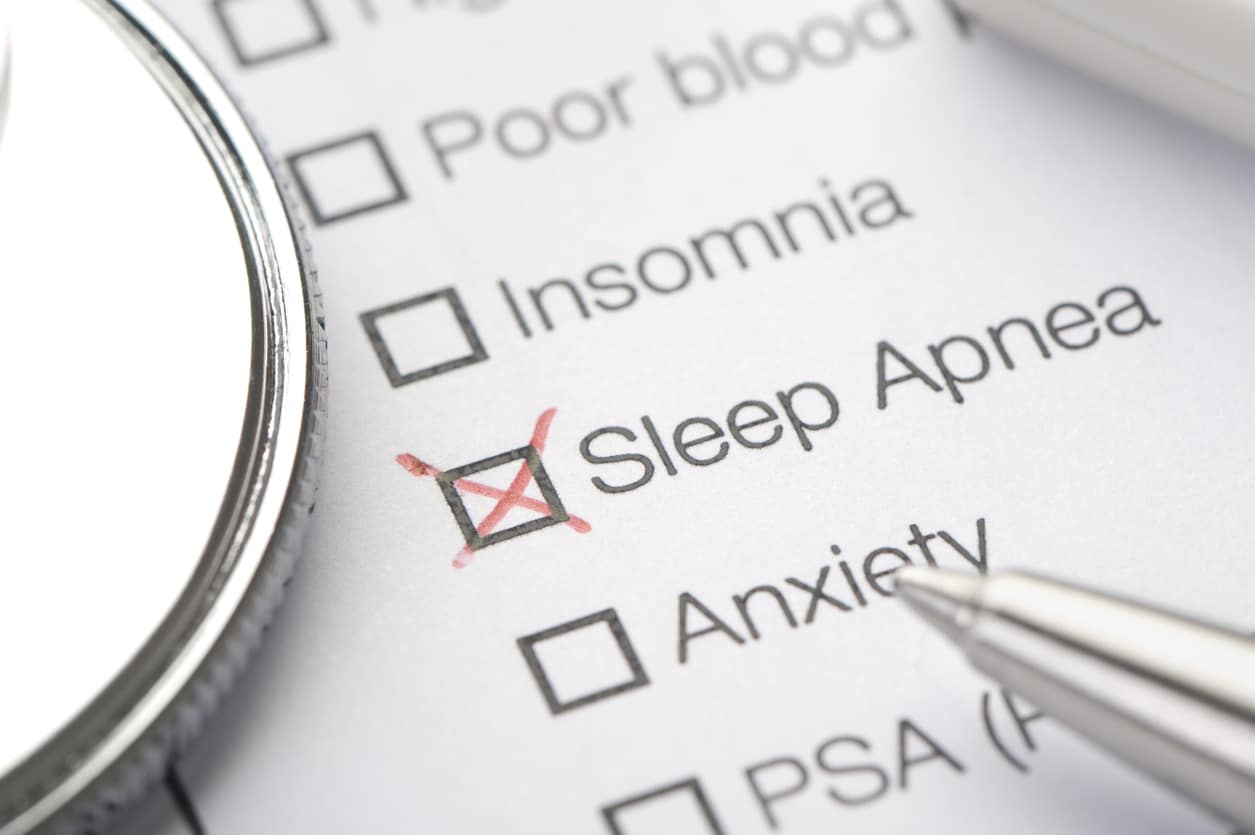Experts estimate that 20 million Americans may have sleep apnea. But how would you know if it only occurs while you are sleeping? Snoring may be one of the key symptoms to look out for.
What Is Sleep Apnea?

Sleep apnea is a condition in which your breathing repeatedly stops and starts throughout the night. It occurs when the muscles in the back of your throat relax. This causes your airway to narrow when you breathe.
When your brain senses you cannot breathe and you are not getting enough oxygen in your blood, it will wake you up to reopen your airway. You usually will not remember this the next day because it is so brief.
For those with sleep apnea, this can happen multiple times a night. “Basically, your body’s working all night,” said Dr. Federico Cerrone, medical director of Sleep and Breathing Disorders for Atlantic Health System.
How Do You Know if You Have Sleep Apnea?
Since sleep apnea occurs while you are asleep, you have to rely on its symptoms to realize you are experiencing a problem. These include:
- Daytime sleepiness
- Dry mouth
- Difficulty paying attention
- Irritability
- Loud snoring
Your bed partner or others who live in your house will be the ones to tell you about your loud snoring.
“Not everyone who snores has sleep apnea – although probably a third to 40% do,” Dr. Cerrone said. “But does everyone who has sleep apnea snore? Yes. It doesn’t have to be a house-rocking noise. It could just be a gentle puffing.”
How Is Sleep Apnea Diagnosed?
In order to determine the cause of your snoring, your doctor will order a sleep study. This can be conducted at home or in a sleep study center. Overnight centers have more advanced machinery to diagnose a wider range of sleep disorders. At-home studies are typically ordered if your doctor suspects sleep apnea is your only disorder.
The results from your study record the number of sleep apnea episodes per hour.
- Normal sleep: 5 or less
- Mild sleep apnea: 5 to 15
- Moderate sleep apnea: 15 to 30
- Severe sleep apnea: 30+
Sleep Apnea Treatment
Mild cases of sleep apnea can often be treated with lifestyle changes, such as losing weight, quitting smoking and avoiding alcohol before bed.
Moderate and severe cases require the use of a continuous positive airway pressure (CPAP) machine. “A lot of people come in with the attitude of, ‘I’m not using that machine,’” Dr. Cerrone said. “I ask them to just try it. Try it for a month or two. And most people, when they try it, they feel better.”
If you think you may have a sleep disorder, now is the time to finally do something about it. Contact the experts at San Diego ENT today to get started.